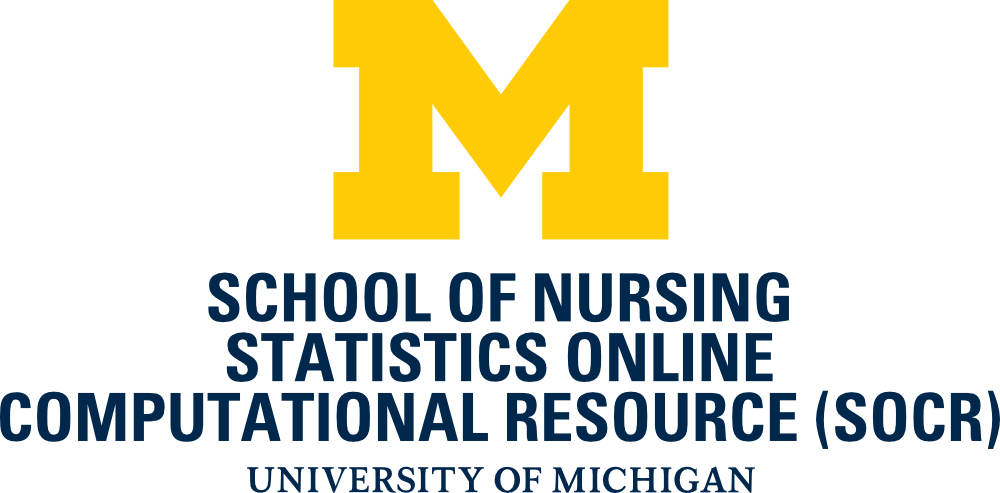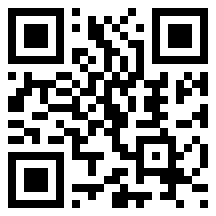Winter 2018: HS 853: Syllabus
Scientific Methods for Health Sciences: Special Topics
An advanced course on probability reasoning, statistical inference, data science, and predictive analytics.
Prerequisites
HS 852, or equivalent, instructor may review syllabi of previously taken courses (past 5 years) and/or require a test to assess the equivalence of the student background, as necessary.
Class Schedule
See UMSN Courses and UMich Office of the Registrar. Mondays (11AM - 1PM) and Wednesdays (11AM - 1PM): Time/Place: School of Nursing Building (SNB 1240), new building at Ingalls and Kingsley.
Course Description
HS 853 will cover a number of modern analytical methods for advanced healthcare research. Specific focus will be on reviewing and using innovative modeling, computational, analytic and visualization techniques to address concrete driving biomedical and healthcare applications. The course will cover the 5 dimensions of Big-Data (volume, complexity, multiple scales, multiple sources, and incompleteness). A number of UMSN Analytics Core Faculty will lead this transdisciplinary health science course, see instructors below. HS853 is a 4 credit hour course (3 lectures + 1 lab/discussion).
Objectives
Students will learn how to:- Research, employ and report on recent advanced health sciences analytical methods
- Read, comprehend and present recent reports of innovative scientific methods applicable to a broad range of health problems
- Experiment with real Big-Data
Examples of Topics Covered
- Foundations of R
- Scientific Visualization
- Review of Multivariate and Mixed Linear Models
- Causality/Causal Inference and Structural Equation Models
- Generalized Estimating Equations
- Dimension reduction
- Instrument reliability (Cronback’s α)
- PCOR/CER methods Heterogeneity of Treatment Effects
- Big-Data / Big-Science
- Scientific Validation: Internal statistical cross-validaiton
- Missing data
- Genotype-Environment-Phenotype associations
- Variable selection (regularized regression and controlled/knockoff filtering)
- Medical imaging
- Non-parametric inference
- Machine learning prediction, classificaiton, and clustering
- Databases/registries
- Meta-analyses
- Classification methods
- Longitudinal data and time-series analysis
- Geographic Information Systems (GIS)
- Psychometrics and Rasch measurement model analysis
- MCMC sampling for Bayesian inference
- Network Analysis
Teaching and Learning Methods
The Winter 2018 HS853 course will include lectures, presentations, and demonstrations by UMSN analytics faculty on a broad range of health science methods and analytical techniques. This course meets four times a week on campus. Learning materials, instructional resources and data will be provided. Assignments will be announced on the web and will be electronically collected, graded and recorded. A variety of teaching methods will be used including lecture, discussion, small group work, and guest presentations.
Textbooks
SMHS EBook and additional resources will be made available through the SOCR Wiki and may include chapters, websites for review, references, reports posted online, ebooks and learning modules. The instructors will provide class notes, software code, scripts, data, and case-studies on the Canvas CMS.Software and Computational Tools
We will use open-source software, libraries and tools including the web-based SOCR tools (which require Java and HTML5/JavaScript enabled web-browsers) and the Statistical computing Software "R" (which you need to download and install the graphical user interface (GUI), RStudio).Canvas (new UMich CMS)
TBD course Canvas site for forums, discussions, homework submissions, etc.
Assignments and Evaluation Methods
- 70% Homework Projects
- 30% Final Paper
Standard letter-grading distribution will be used:
- A: 90%+
- B: 80-90%
- C: 70-80%
- D: 60-70%
- ...
- Plus and minus grads will also be used (e.g., "B-": 80-83%; "B": 83-87%; "B+": 87-90%)
Grading Policy
The lowest graded Homework assignment will be dropped. All Homework assignments must be completed by the corresponding deadline. No late assignments will be accepted. For students with genuine documented reasons for missing the midterm arrangements will be made. After receiving the graded exams or HW/projects back, if you believe a grading error has occurred, please see the Instructors, or Dr. Dinov, within one week. Late regrade requests may not be accommodated. Reading assignments will be given. You will be responsible for the information covered in these assignments. Attendance of lecture and discussion will be recorded from time to time.
Office Hours
- Instructors:
Anne Buu,
James Yang,
Robert Ploutz-Snyder, and
Ivo D. Dinov
OHs: Contact each instructor (Dr. Dinov: Thursdays: 9:30 AM, SNB 4126) - Discussion Forum/Chat


